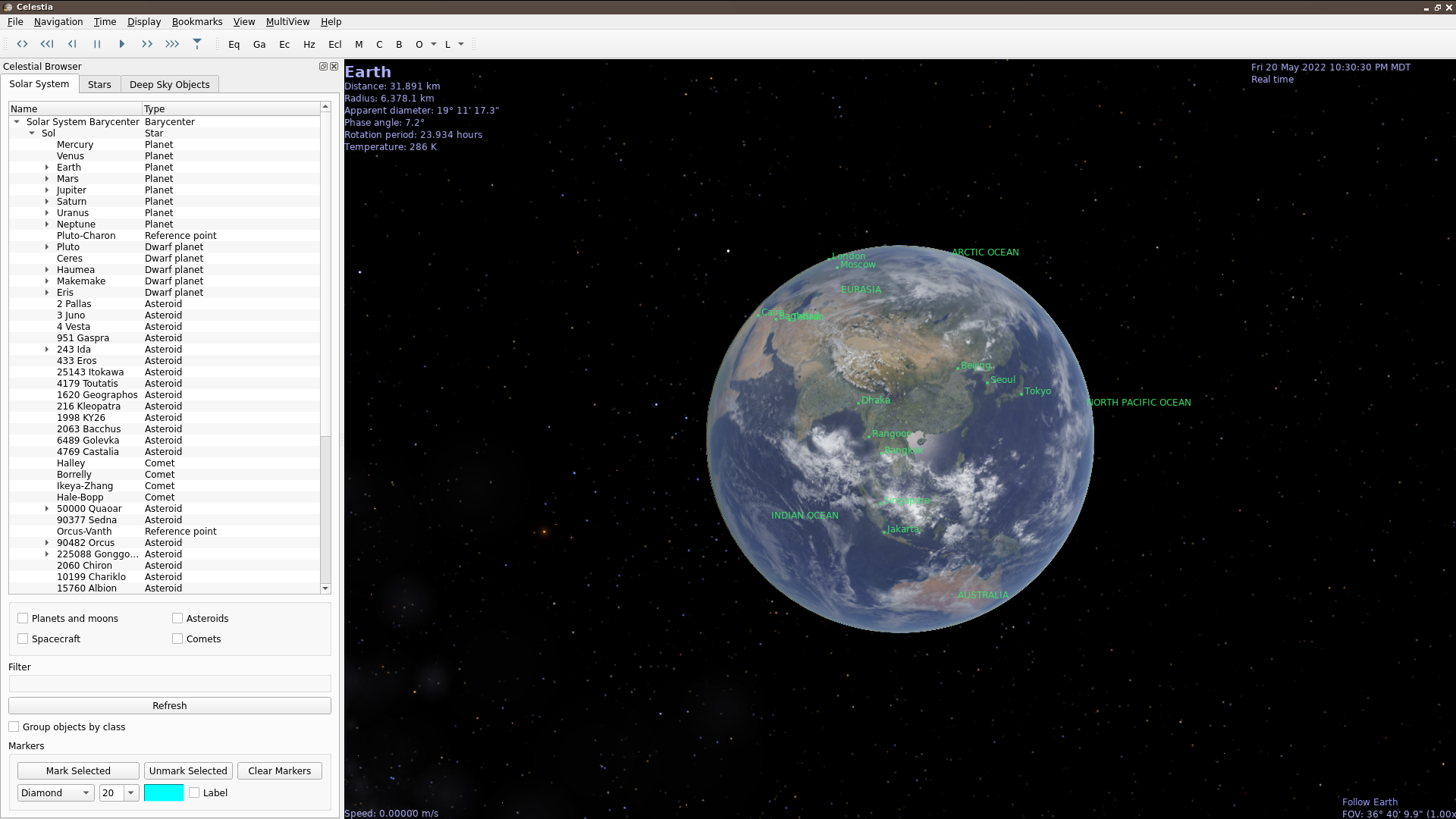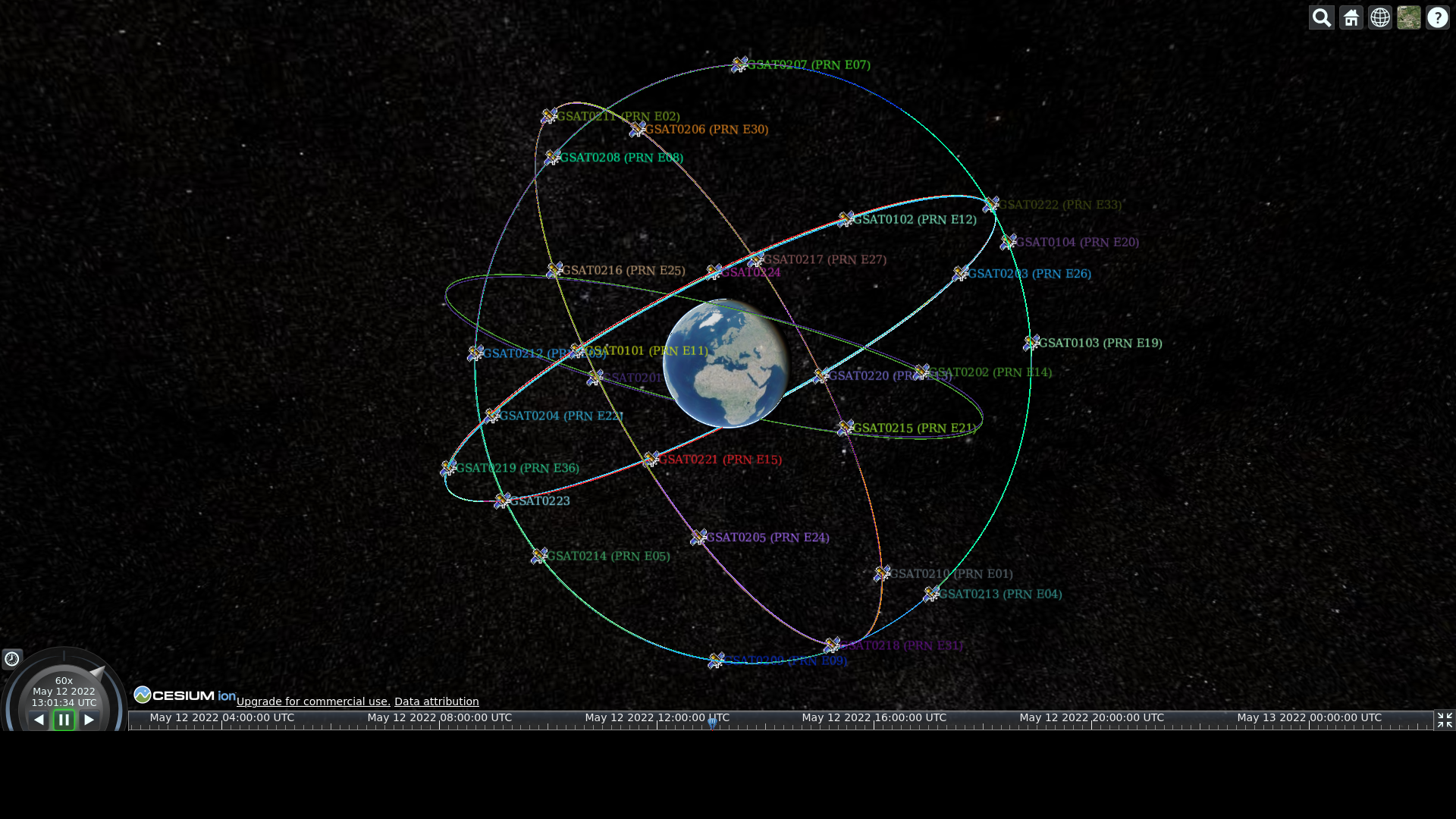|
|
||
|---|---|---|
| data/galileo-gnss | ||
| pics | ||
| .gitignore | ||
| LICENSE | ||
| README.md | ||
README.md
Spacecruft Celestia GNSS
Celestia is a "real-time space simulation that lets you experience our universe in three dimensions".
It contains many celestial objects, but few that are man made, just as Hubble. It has a TLE for the ISS, but it doesn't update it.
There is a spreadsheet that you can enter a TLE into it and it
generates an .ssc file that Celestia can read. Using a spreadsheet
is a bit awkward, and hard to automate.
It would be real swell to be able to add TLEs to Celestia more easily. Then all the GNSS satellites could be added. Or SatNOGS...
It will take the data that generates this:
And render it in this application:

See Also
Spacecruft
Spacecruft:
Celestia
Upstream Celestia:
TLE
TLE Conversion Spreadsheet:
-
https://www.classe.cornell.edu/~seb/celestia/hutchison/spreadsheets.html
-
https://www.classe.cornell.edu/~seb/celestia/hutchison/tle-xls.zip
Solar System Catalog
"Solar System Catalog" files are primarily used to define the objects which can be found in a stellar system, such as planets, moons, asteroids, comets, and spacecraft. They also have four other uses: they can define alternative surface textures, locations on or near an object, and orbital reference points. An SSC file can also edit objects which have been defined in other SSC catalog files.
Info on .ssc files:
Spice
Spice TLE: "Evaluate NORAD two-line element data for earth orbiting spacecraft."
pyorbital
Orbital and astronomy computations in python.
License / Copyright
Copyright (C) 2022 Jeff Moe.
License: GPLv2 or any later version.
